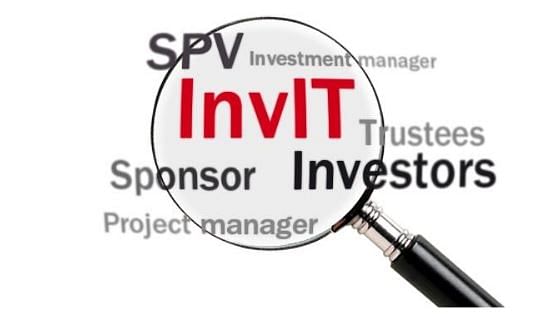Infrastructure investment trusts are investment instruments that work like mutual funds and are regulated by the Securities and Exchange Board of India.

What are InvITs?
Infrastructure Investment Trust (InvITs full form), their units are listed on different trading platforms like stock exchanges and are a wholesome combination of both equity and debt instruments.
The primary objective of InvITs is to promote the infrastructure sector of India by encouraging more individuals to invest in it which can be modified according to a given situation.
Typically, such a tool is designed to pool money from several investors to be invested in income-generating assets. The cash flow thus generated is distributed among investors as dividend income. When compared to Real Estate Investment Trust or REITs, the structure and operation of both are quite similar.
Types of InvITs
Investment in Revenue-generating Finished Projects –
One of the types allows investment in revenue-generating finished projects and tends to invite investors through a public offering.
- Investment in Projects Under Construction –
Additionally, investors are also allowed to invest in projects that are under construction or have been finished. Notably, this type opts for a private placement of its units.
Structure of InvITs in India
An InvIT is established as a trust and is registered with the SEBI. Typically, infrastructure investment trust SEBI comprises 4 elements, namely –
- Trustee: They are required to be registered with SEBI as debenture trustees. Also, they are required to invest at least 80% into infra assets that generate steady revenue.
- Sponsor: Typically, a body corporate, LLP, promoter or a company with a net worth of at least Rs. 100 crore classifies as a sponsor. Further, they must hold at least 15% of the total InvITs with a minimum lock-in period of 3 years or as notified by any regulatory requirement.
When it comes to a public-private partnership or PPP projects, sponsors serve as a Special Purpose Vehicle (SPV).
- Investment manager: As a body corporate of LLP, an investment manager supervises all the operational activities surrounding InvITs.
- Project manager: The authority is mostly responsible for executing projects. However, in the case of PPP projects, it serves as an entity that also supervises ancillary responsibilities.
What is the Purpose of InvITs?
The purpose of InvITs is to enable Infrastructure Companies to repay their debt obligation quickly and effectively. Since infrastructure-oriented projects tend to take time to generate substantial cash flow, InvITs come in handy for paying off loan interests and other expenses conveniently.
What are the Advantages of InvITs?
Diversification- InvITs with multiple assets offer individuals an opportunity to diversify their investment portfolio. Such a feature directly helps lower associated risks and further allows investors to generate steady returns in the long run.
Accrues fixed income- The option to redistribute risks and accrue a fixed income serves as a potent alternative for generating fixed income, especially for retirees. Also, including such an investment tool would help those who intend to plan retirement effectively.
Liquidity- Generally, it is easy to enter or exit from infrastructure investment trust, which directly enhances their liquidity aspect. However, small investors may find it challenging to sell a high-valued property quickly.
Quality Asset Management- InvITs offer investors the opportunity to get their assets managed professionally. It not only ensures effective management and allocation of resources but also helps to prevent fragmentation of holdings.
Nevertheless, the pointers below help to understand how different elements tend to benefit by investing in an infrastructure investment trust.
Investors- Parking funds into this investment option allows investors to generate fixed returns on the same. For instance, an infrastructure investment trust has to distribute 90% of its total net cash flow to its investors. It means that investors can generate steady earnings throughout the course of investment.
Additionally, investors also receive dividend income on their investment in case the InvITs have surplus cash flow.
Promoters- By investing in InvITs, promoters would be able to lower their debt burden significantly via an asset sale. Further, promoters can use the proceeds to reinvest in other portfolio projects.
What are the Disadvantages of InvITs?
Regulatory Risk- Even the slightest change in the regulatory framework like taxation or policies concerning the infrastructure sector would have a ripple effect on InvITs.
Inflation Risk- A high rate of inflation has a significant impact on the performance of infrastructure investment trusts. For instance, inflation may increase the sector’s operating costs. Further, an increase in the toll rates would lower the prospect of generating substantial returns.
Asset Risk- Typically, investment in infrastructure has a long gestation period, and hence the process of generating returns is often delayed. Such a delay not only takes a toll on the cash flow but further hampers profit projections.
FAQs
What is InvIT?
Infrastructure Investment Trust (InvITs) is a Collective Investment Scheme that enables direct investment of money from institutional investors and individuals in projects related to infrastructure in order to earn a little part of the income in the form of return.
What are the examples of InvITs?
Examples of InvITs include roads, railways, power generators, telecommunications, airports.